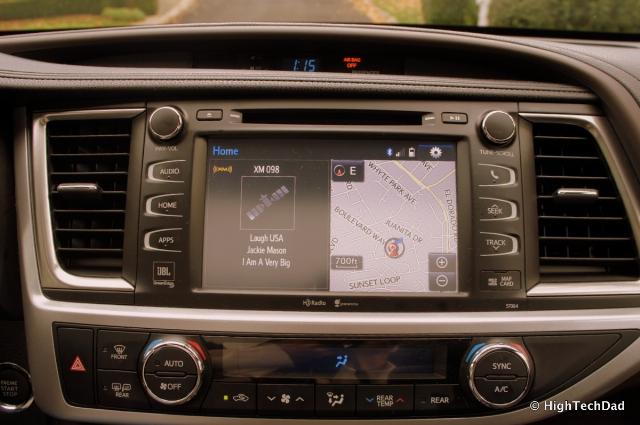Another bad idea: Touchscreens in cars
One of the happy cycles in my life occurs every three to four years when I drive home in a new vehicle.
However, for me, the current car market is a challenge.
I currently own a great vehicle. It is a 2018 Audi allroad, a small but luxurious station wagon with a sophisticated all-wheel drive system and a powerful two-liter turbocharged four-cylinder engine.
I have kept it for longer than usual, but I am beginning to be concerned about maintaining this complex automobile once it is out of warranty.
So, why don't I just buy the new 2024 model?
The problem is, that Audi, like most manufacturers these days, has “gone astray.”
In 2018 when my car was built, Audi was building cars with features controlled with a simple and intuitive driver interface. One could navigate through systems with tactile controls requiring minimal distraction from the road.
For the 2020 model year, the engineers at Ingolstadt decided that touch screens would become the new control method in Audi interiors. Many of the physical buttons were removed. Controls are now in the center screen, activated by pushing on a flat panel without any haptic feedback. In many cases, previously simple tasks are now buried behind several menus.
Recently, my car required service. I requested a similar updated model as a loaner, so I could experience the new interface. Many of the conveniences of my car had been eliminated, and I could find no safe way to quickly activate functions without focusing on the screen and not the road. There was some voice control, but it was an inadequate substitute for buttons. In short, it drove me nuts. So, for me, no new allroad.
Audi is not alone. The sister divisions of Volkswagen and Porsche which had been models of simplicity and logic have been infected with the same nonsense. In fact, it has spread throughout the industry.
I believe that automobile companies have several motivations. First, touchscreen technology is fashionable, and no one wants to be seen to be falling behind. And I will admit that the aesthetics of these dashboards, and the access to the information, can at times be compelling… If you weren’t trying to drive.
There are also cost benefits, as one might expect. A traditional dashboard requires separate wiring for each manual control circuit. Digital dashboards and controls are configured by programming and can be much less complex to set up. New features can also be added quickly. Touchscreens will also help to facilitate the industry’s new bad idea: automotive options such as heated seats, available only by subscription with monthly payments required.
So, for the first time in my life, I find myself drawn to models that have been in circulation long enough to have traditional control layouts. This typically means cars that are reaching the end of their model run.
One other issue with touchscreen controls is the expense involved in their replacement. These screens control the core functioning of modern automobiles. If they break, the car is essentially "bricked.” I priced, for instance, the two screens on my allroad. The instrument cluster screen is very expensive at about $1200. The center screen, where the navigation, audio, and auto systems are controlled is an eye-watering $5500. It could be very expensive to own one of these cars if they are not under warranty. It also begs the question: Who will be able to afford to repair these vehicles in 5-10 years should this technology begin to fail?
As I age, it bothers me to sound like a Luddite, especially with computer technology, with which I am otherwise quite comfortable. I do think however that this technology has demonstrable downsides. Perhaps someday, it will go the way of the "talking cars" of the 80s which disappeared rather quickly. Perhaps voice controls will become a workaround for the crappy interfaces.
To me, touchscreen interfaces, much like the relentless promotion of electric vehicles, are part of a larger pattern in the automotive industry which seems determined to sell to us things that we do not want. Part of this behavior is due to upcoming government regulations. Despite this, it feels as though the industry no longer has any concern for the wishes of the average consumer. Sadly but predictably, this philosophy, combined with their rapacious pricing during the pandemic, has sent the industry into a tailspin with plummeting sales and falling prices.
Maybe it is a good time to buy after all.
Henry F. Smith Jr MD Is a pulmonary and sleep physician. He blogs at: henrysmithscottage.com

Image: Wikipedia, Michael Sheehan
FOLLOW US ON
Recent Articles
- Why Do Democrats Hate Women and Girls?
- There is No Politics Without an Enemy
- On the Importance of President Trump’s ‘Liberation Day’
- Let a Robot Do It
- I Am Woman
- Slaying the University Dragons
- Canada Embraces European Suicide
- A Multi-Point Attack on the National Debt
- Nearing the Final Battle Against the Deep State
- Now’s the Time to Buy a Nuke (Nuclear Power Plant, That Is)
Blog Posts
- So Milley was running the whole Ukraine war with Russia without telling the public -report
- New York’s ‘clean energy’ demands are unattainable, per industry’s own experts
- Astronauts carefully tell the truth
- California voters introduce new health care ‘access’ ballot initiative named after Luigi Mangione
- ‘American Oversight’? What a joke!
- Pete Hegseth in the line of fire—again
- Canadian Prime Minister Mark Carney is accused of plagiarizing parts of his Oxford thesis
- France goes the Full Maduro, bans leading opposition frontrunner, Marine Le Pen, from running for the presidency
- Bob Lighthizer’s case for tariffs
- An eye for an eye, an order for order
- Peace on the Dnieper?
- Tesla protestor banner: 'Burn a Tesla, save democracy'
- Pro-abortionists amplify an aborton protest's impact
- A broken system waiting to crash
- The U.S. Navy on the border






